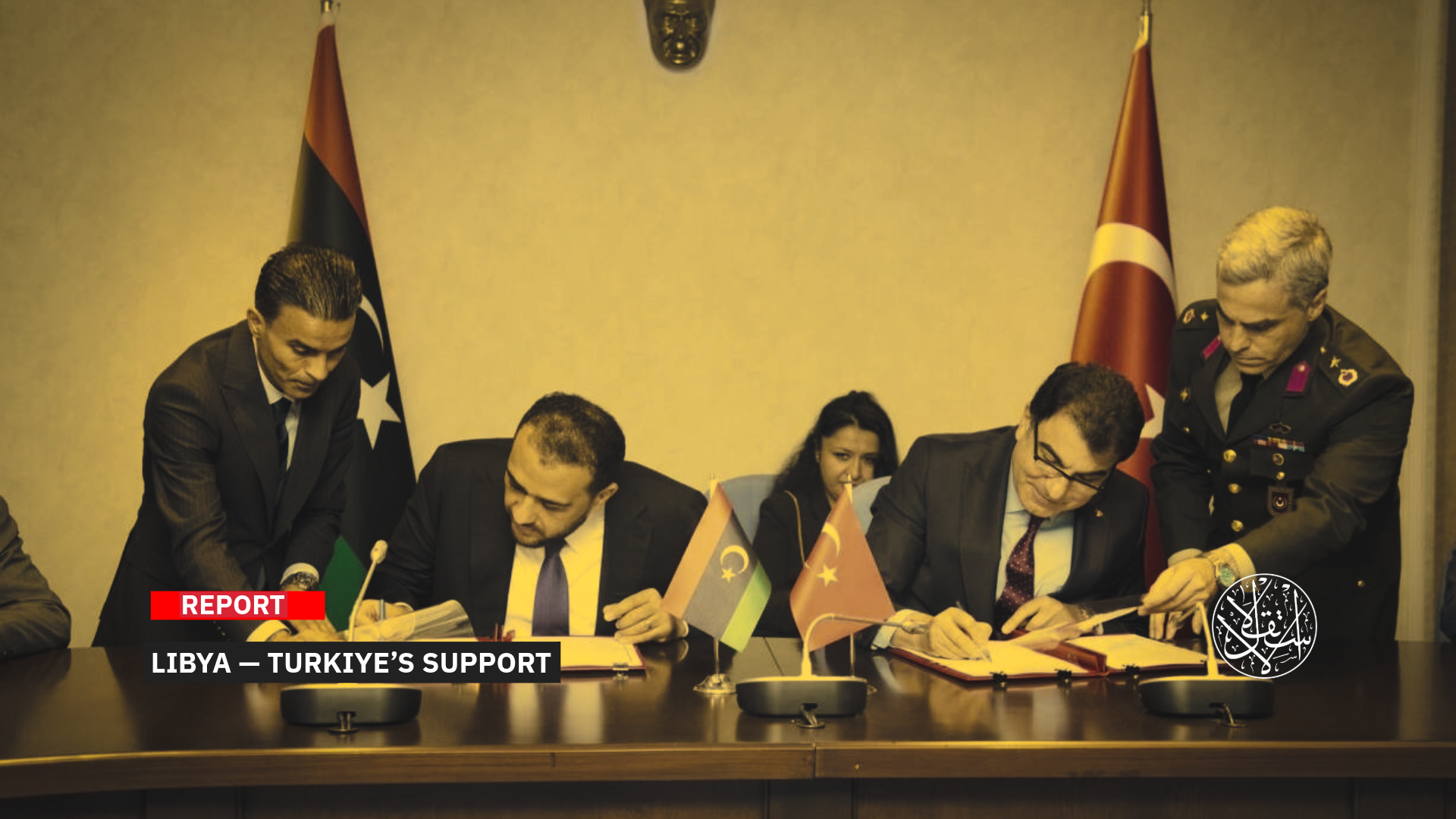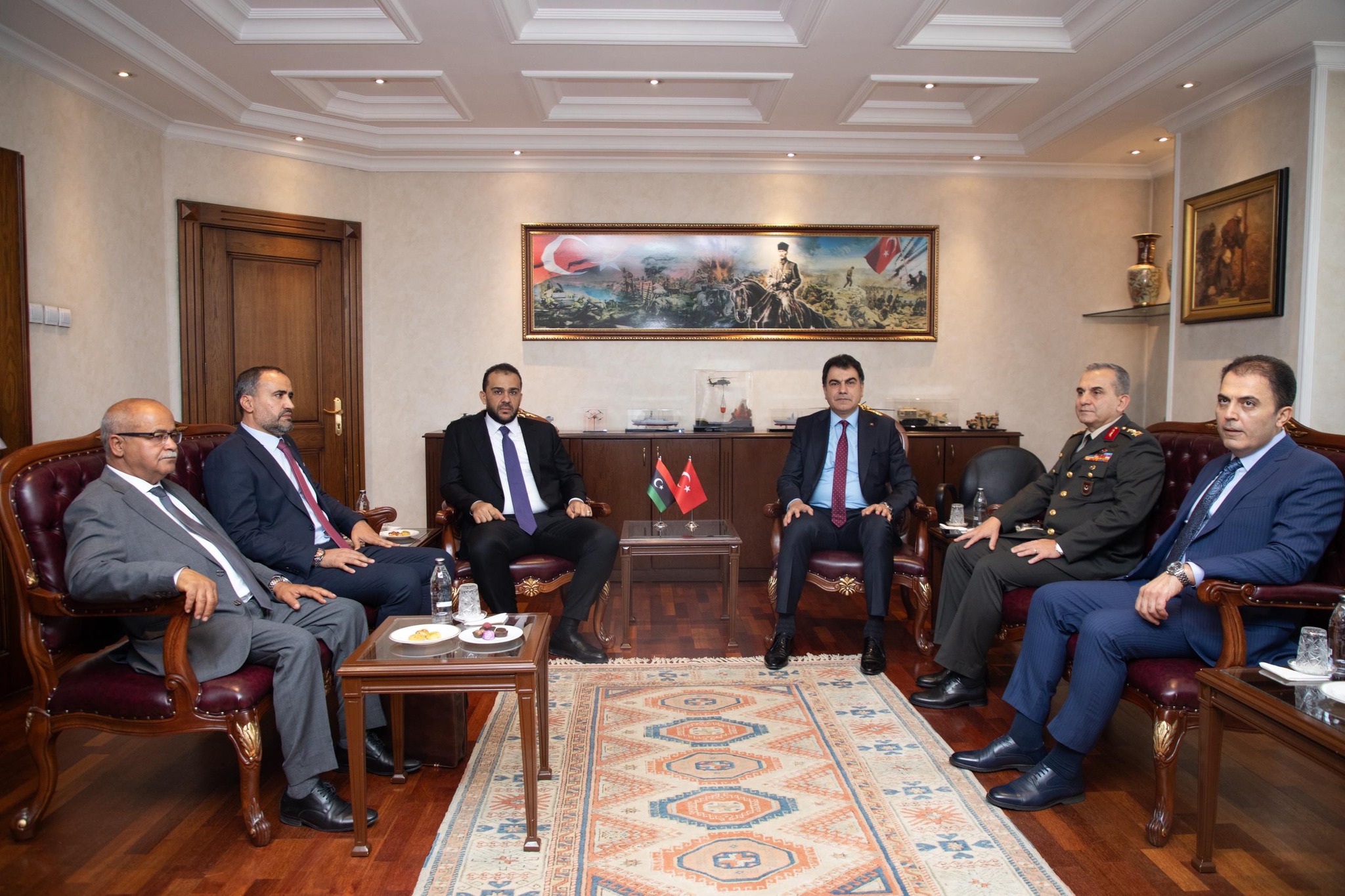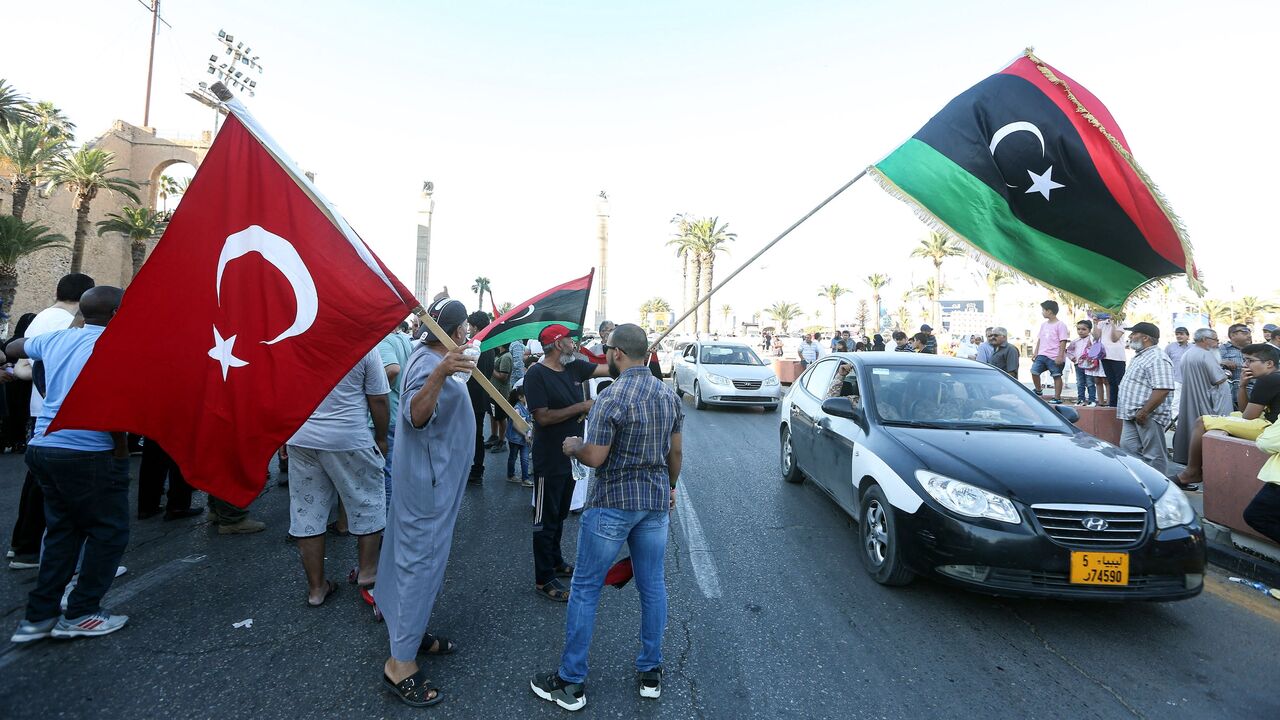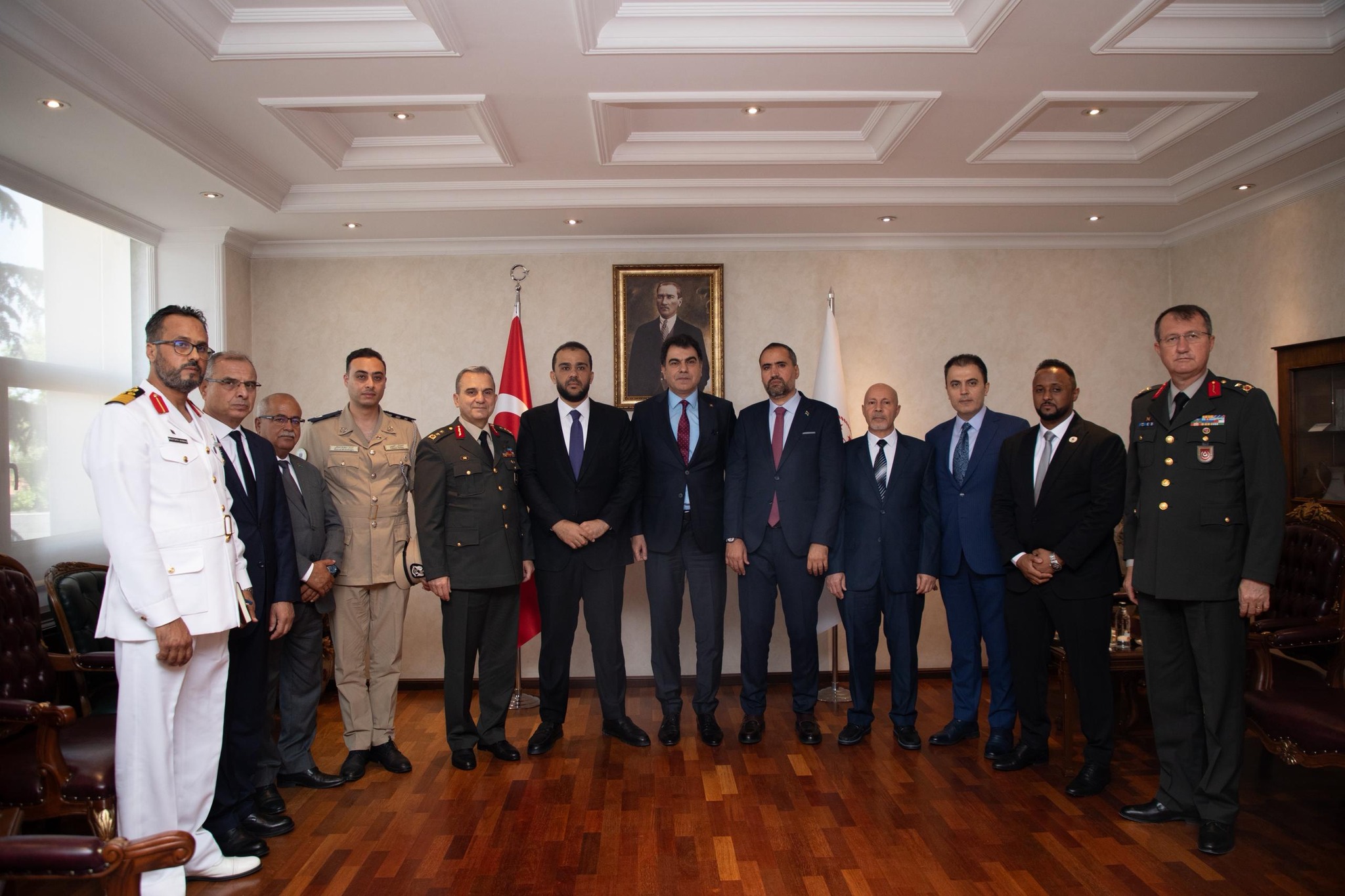With Tripoli Divided and Haftar Advancing, Why Is Dbeibah Turning to Turkiye Again?

The Libyan government is turning to Turkiye to shore up its military and institutional standing amid ongoing divisions.
As security tensions rise in the Libyan capital, Tripoli, the Government of National Unity finds itself facing a scenario reminiscent of the perilous days of 2020—when the city nearly fell into the hands of rogue General Khalifa Haftar, before Turkish military intervention shifted the tide of battle.
Now, after a period of relative calm, new fears are emerging. Armed factions within Tripoli are increasingly divided, while anti-government regional alliances are gaining ground—most notably the growing cooperation between Haftar and Sudanese RSF leader Mohamed Hamdan Dagalo (known as “Hemedti”), who now controls the strategic southern border triangle.
Adding to the tension are the mounting movements of Haftar’s sons and their frequent visits to Egypt, signaling a potential reshuffling of cards and a wave of preparations that many in Tripoli view as ominous.
In response to these converging threats, the Libyan government is seeking to reinforce its military and institutional footing—turning once again to Ankara with a newly signed strategic agreement aimed at rebuilding the Libyan armed forces.
The move is widely seen as a bid to preempt looming dangers, whether from within or across Libya’s borders. But what exactly does this agreement entail—and how far will it go in shielding the Tripoli-based government?
Turkish Commitment
On July 10, 2025, Libya’s Ministry of Defense signed a new military cooperation agreement with its Turkish counterpart, focused on restructuring and modernizing the Libyan military as part of a broader effort to revitalize the country’s defense institutions.
The agreement was signed in Ankara during an official visit by Libyan Deputy Defense Minister Abdulsalam al-Zoubi, who met with senior Turkish defense officials, including Defense Minister Yaşar Güler.
According to Libya’s official government platform Hakomitna (Our Government), the deal includes advanced military training programs, technical and logistical support, and an exchange of expertise—all aimed at boosting the operational readiness and professionalism of Libya’s armed forces.
Al-Zoubi emphasized that the agreement reflects his ministry’s commitment to building a capable and professional military, calling it “a cornerstone for any national project seeking lasting stability.”
Ankara reaffirmed its continued military and technical support to Libya, building on the 2019 Security and Defense Memorandum of Understanding, which laid the foundation for today’s strategic partnership.
The new agreement marks a notable shift in Turkiye’s role in Libya, moving Ankara from a phase of emergency military support during the civil war (2019–2020) to one of long-term institutional development.
After its decisive military intervention to back the former Government of National Accord against Haftar’s offensive, Turkiye has since played a central role in reshaping the security and defense institutions in western Libya. This has included ongoing training programs and the establishment of technical and logistical support centers.
While the agreement appears positive, its signing could spark domestic and international concerns, particularly given the deep political divide between Libya’s east and west, and the presence of rival regional and global powers competing with Turkiye for influence, including Egypt, the UAE, and France.
For the Tripoli-based government, strengthening ties with Ankara is seen as a strategic step toward securing the capital and building a unified military institution. But for other Libyan actors—especially those aligned with the eastern-based forces not recognized internationally—the move is seen as an entrenchment of Turkish influence and a sidelining of Haftar’s military presence.
Regionally, the deal is perceived as part of the ongoing battle for influence between Turkiye and an opposing axis of powers that support rival factions in Libya. This could further complicate the country’s already fragile security and political environment, especially as UN efforts to unify Libya’s military institutions remain stalled.
Game-Changing Support
Turkiye’s backing of the GNA has long been a game-changer in the fight against Haftar’s forces.
Ankara provided extensive assistance that included training, tactical advice, the transfer of advanced equipment, and real-time intelligence sharing under a series of official and operational defense agreements.
Perhaps the most emblematic element of Turkish support was the deployment of its Bayraktar TB2 drones, which proved effective in neutralizing Russian-made Pantsir air defense systems used by Haftar’s forces.
This aerial edge allowed the GNA to retake key strategic positions, thanks to precision drone strikes and artillery coordination.
Turkiye also supplied the Libyan military with modern armored vehicles, such as the Kirpi II and Vuran models, enhancing mobility and logistics in frontline operations. Turkish Korkut air defense systems were instrumental in repelling hostile drones, while T-155 Firtina self-propelled howitzers delivered significant firepower against Haftar’s formations.
Turkiye also deployed FNSS ACV-15 armored carriers and trained Libyan infantry units to operate the T-122 Sakarya multi-barrel rocket launchers—contributing to a significant boost in the Libyan army’s operational capabilities.

The Battle for the Coast
Turkiye’s military involvement in Libya hasn’t been confined to ground operations—it extended to the maritime front as well. With Turkish backing, Libya’s naval command carried out coastal air-defense operations targeting Haftar-aligned positions along the shore, striking strategic sites using naval artillery.
According to a February 11, 2025 report by Daily Sabah, the Libyan conflict has showcased the effectiveness of several Turkish weapons systems, including the KARGU Kamikaze UAV developed by STM. It was reportedly used in precision frontline strikes, boosting global interest and demand for the system.
Though many details remain classified, intelligence reports suggest that Turkiye deployed advanced electronic warfare systems during these operations, aimed at jamming Haftar’s communications and disrupting his defensive coordination. “However, detailed information is not available due to the difficulty in tracking these activities and the high level of secrecy,” Daily Sabah noted.
This military engagement, the paper added, was not merely a tactical response—it reflects a broader strategic vision in which Turkiye seeks to expand its influence across the Eastern Mediterranean. One of the key instruments in this strategy has been its growing defense industry.
The export of Turkish Akinci drones to Libya, along with a high-level meeting in January 2025 between Turkish defense industries chief Prof. Haluk Görgün and Libyan Chief of Staff Muhammed al-Haddad, signals that cooperation between the two countries has evolved well beyond battlefield support. It now extends to the foundational rebuilding of Libya’s military institution.

The Strategic Dimension
Turkiye’s role in Libya is deeply intertwined with the broader geopolitical chessboard of the Eastern Mediterranean, where Ankara is determined to safeguard its maritime and energy interests while countering rival blocs that include Egypt, Greece, and Cyprus.
In this complex regional struggle, Turkiye’s military presence in Libya stands out as one of its most significant levers of geopolitical influence.
But Ankara’s strategy hasn’t been limited to preserving the military gains achieved by the former Government of National Accord with Turkish support. Instead, it has expanded into a long-term vision aimed at securing sustainable economic and diplomatic influence—effectively repositioning Libya as a strategic ally.
As the fighting cooled, Turkiye shifted gears, launching initiatives to support the peace process. This included opening direct communication channels with eastern factions—including Khalifa Haftar’s administration in Tobruk—without stepping back from its close political and military partnership with the internationally recognized government in Tripoli.
On the economic front, Ankara views Libya as a key partner for major development projects—especially in renewable energy, where Libya is facing a severe electricity shortage. Tripoli, in turn, is eager to leverage Turkish technological expertise to meet these pressing needs.
This outlook aligns with plans for a tri-national Ro-Ro shipping route linking Turkiye, Libya, and Italy, and the resumption of Turkish Airlines flights to Benghazi. Together, these moves signal Turkiye’s ambition to deepen its role in Libya—not just as a military actor, but as an enduring economic and strategic partner.

A Greek Perspective
In an analytical article published on the Greek news site Ekathimerini, Constantinos Filis—Professor of International Relations and Director of the Institute for Global Affairs at the American College of Greece—argues that the latest Libyan-Turkish defense agreement reflects the overtly military nature of Ankara’s relationship with Tripoli.
Filis notes that Turkiye’s military intervention years ago, which prevented Khalifa Haftar’s forces from capturing the Libyan capital, dramatically shifted the balance of power in the country’s civil war. That intervention, he says, provided Ankara with a strategic opportunity to leverage its role as rescuer to push its contentious maritime claims in the Aegean and Eastern Mediterranean.
He criticizes Greece’s decision to expel the Libyan ambassador in December 2019 as rash, claiming it effectively severed all diplomatic channels with Tripoli. Athens, instead, threw its support behind the eastern-based parliament and Haftar’s camp. But unlike Turkiye, Filis explains, Greece lacked the necessary leverage to offer meaningful incentives or extract pro-Greek positions from Haftar.
Meanwhile, Turkiye has steadily expanded its presence in Libya across military, diplomatic, and economic domains—without facing real pushback from key European powers, particularly Italy. French and Egyptian efforts to bolster Greece’s position through their eastern Libyan allies have remained limited, Filis observes, citing France’s declining clout in Africa and Egypt’s domestic challenges.
Ultimately, Filis concludes, Libya holds more than just strategic value for Ankara. “[It] is a pivotal partner because it helps create a corridor of influence stretching from the central Mediterranean all the way to central Africa, offering a point of penetration into the Sahel.” He also suggests there’s an unresolved historical dimension at play—Turkiye still hasn’t fully reconciled with the loss of Libya to Italy in 1912.
Sources
- Türkiye's strategic footprint in Libya: Blend of military might, diplomatic engagement
- Libya’s unity government, Turkiye strengthen military cooperation with agreement in Ankara
- Where do we go from here with Libya?
- Turkiye and Libya sign a new military cooperation agreement to restructure the Libyan army [Arabic]












